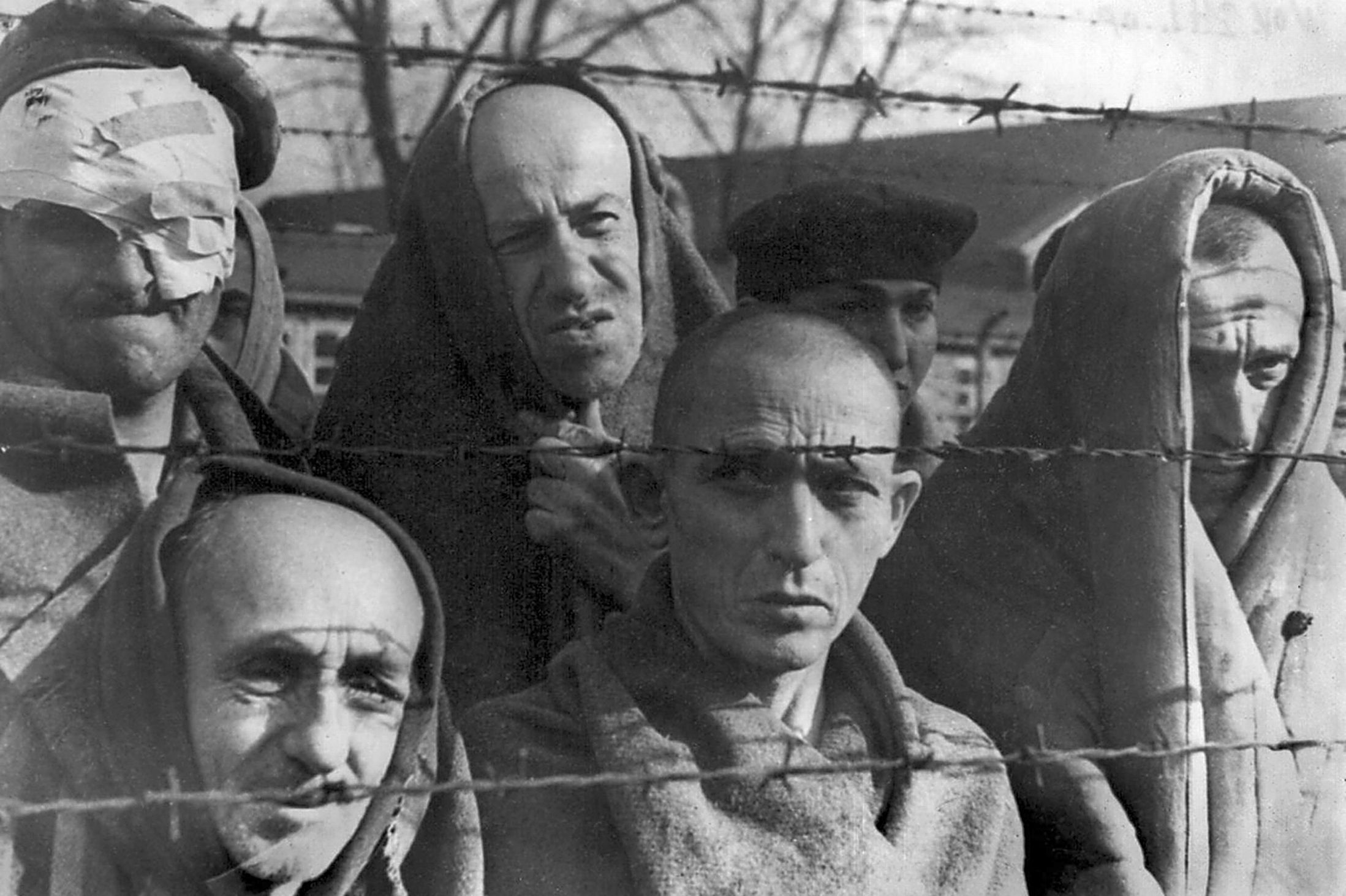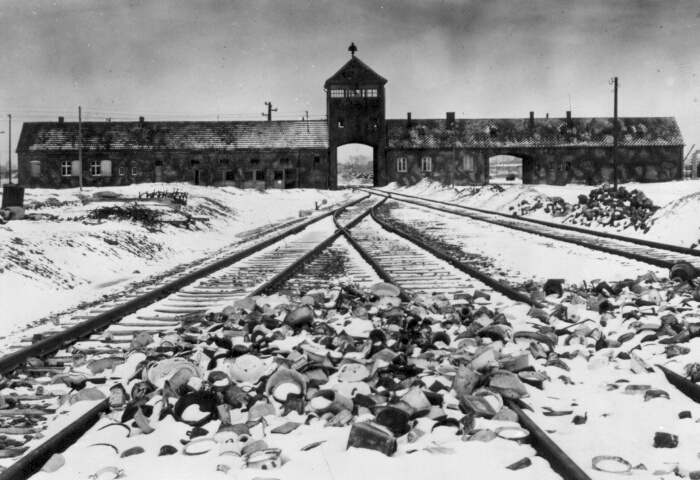Auschwitz, a name synonymous with evil, was liberated 70 years ago, on January 27, 1945. It’s fitting to reflect not only on the industrialized slaughter of 11 million people under the Nazis (1.1 million at Auschwitz), but the nature and presence of evil in our world today. Darkness cannot be dispelled if we comfortably distance ourselves from it.
 The creation of “death factories” by the Nazis certainly added a new dimension to mass slaughter, but genocide did not begin or end with them. Besides, as Daniel Jonah Goldhagen says in a recent piece entitled, “How Auschwitz Is Misunderstood,” “Had the Nazis never created gassing installations at Auschwitz, Treblinka, Sobibor and elsewhere, they would still have killed around the same number of Jews and non-Jews.”
The creation of “death factories” by the Nazis certainly added a new dimension to mass slaughter, but genocide did not begin or end with them. Besides, as Daniel Jonah Goldhagen says in a recent piece entitled, “How Auschwitz Is Misunderstood,” “Had the Nazis never created gassing installations at Auschwitz, Treblinka, Sobibor and elsewhere, they would still have killed around the same number of Jews and non-Jews.”
Evil, like terrorism, is no longer a matter of physical scale, genocide and extermination. In our completely interconnected age, when anyone with a cell phone and internet access can and does hear of atrocities anywhere in the world almost in real time, the means of evil have changed, but its ends have not.
But can one really speak of evil having intentionality? One not only can, but must, since without intentionality it isn’t evil, merely darkness.
So what is evil, and what is its goal? Were the Nazis, with their system of industrialized death, a “moral and mental mutation,” as Goldhagen says? In remembering and mourning Jewish and non-Jewish victims of the death camps, are we “gazing into the Nazi abyss that would have consumed their Continent and the world,” or are we gazing into the globalizing abyss that is consuming the world now?
The notion that Western civilization’s “core notion of a common humanity” was under threat by the Nazis but is alive and well as the global war on terror America started spreads and rages on, is preposterous. A terrorist network can’t declare war, only nation-states can.
It’s easy to talk about the evil of the Nazis, but much more difficult to talk about present-day evil in our own societies and world. In America, we have to ask the hard question: Do we live in a culture that is ruled by evil? Not politically (given the interregnum of frustrated reason that characterizes the Obama Administration), but inwardly and socially.
A hair-splitting, mind-numbing debate about torture is going on the United States since the December release of a report of Senator Feinstein’s report on CIA torture during the Bush-Cheney Administration. It attests to the fact that evil not confronted with a full airing is evil continued with the people despairing.
Professional philosophers in this supposedly civilized society are adding to the muddiness and muck by uttering gobbledygook like, “since being killed is generally worse than being tortured, it should therefore be justifiable to torture a person to prevent him from killing innocent people.” The American people have morally completely lost their way.
Aaron (errata Richard) Burr, Republican of North Carolina, is trying to close the doors after the horses have left the barn. Mr. Burr wants all the copies of the 6,700-page Feinstein report, which were distributed to many departments and agencies within the executive branch but not made public, to be “returned immediately.” Returned to whom, the CIA?
This is one ongoing expression of the darkness and deadness that rule this country far more than economic factors. For as the President said in his State of the Union speech last  week, America once again has an economy that is “the envy of the world.” Is saturation by darkness the reason the American people remain stuck in a malaise that Jimmy Carter could not have imagined?
week, America once again has an economy that is “the envy of the world.” Is saturation by darkness the reason the American people remain stuck in a malaise that Jimmy Carter could not have imagined?
There’s a type of low-grade depression called dysthymia. People suffering from it are able to function, even well, but experience a persistent flatness of feeling that renders their lives joyless and filled with ennui. In other words, dysthymics usually look and act well, but just below the surface their ‘affect’ is stuck.
Having suffered from acute depression in my 20’s, which even physically shut me down for days at time, and having not fallen into the bottomless pit since then (mainly through methodless meditation, which allows mental emotional crud to empty out in undivided observation), I know depression when I see it. And the vast majority of people are suffering from depression or dysthymia in America.
Of course the psychological industry, reflecting and reinforcing the individualism that supports it, fixes depression and dysthymia in personal contexts of family and primary relationships. It doesn’t ask: Why has this culture produced a pandemic of depression and dysthymia in people? The reason is unaddressed darkness and un-confronted evil.
As much power as evil has in human consciousness and the world, it is man-made. And since it is man-made, we can face it. But we do have to confront it, first and lastingly by owning and learning from the darkness within ourselves. Then by speaking up when encountering any of evil’s forms, such as anti-Semitism or anti-Islamism.
When evil rules a nation, it kills the culture. Adapting to the dead culture, more and more people become inwardly dead. And the dead are conductors for evil; it flows through you more easily than electricity through copper.
What is the relationship between the living and the living dead? They have no relationship. But if conduits (call them zombies if you wish) really have an insight into themselves, and stick with it, they cease being conduits. The circuit is broken.
Evil flows from and thrives on lies. The aims of evil are not physical and material, but psychological and spiritual. The ultimate goal of man’s self-made evil is to kill the human spirit. It is succeeding.
But no matter how many nations and peoples are overwhelmed and perish, evil will ultimately fail as long as there are people who seek and tell the truth.
Martin LeFevre

